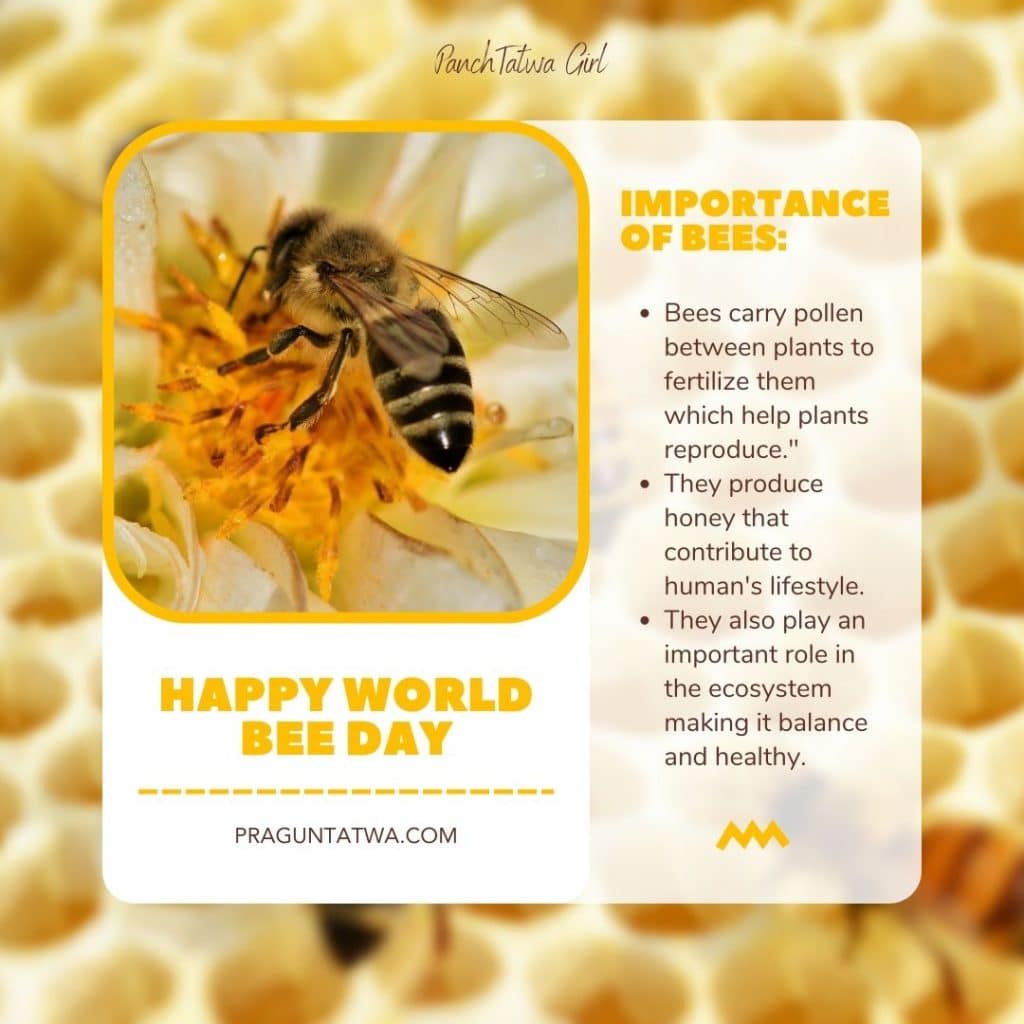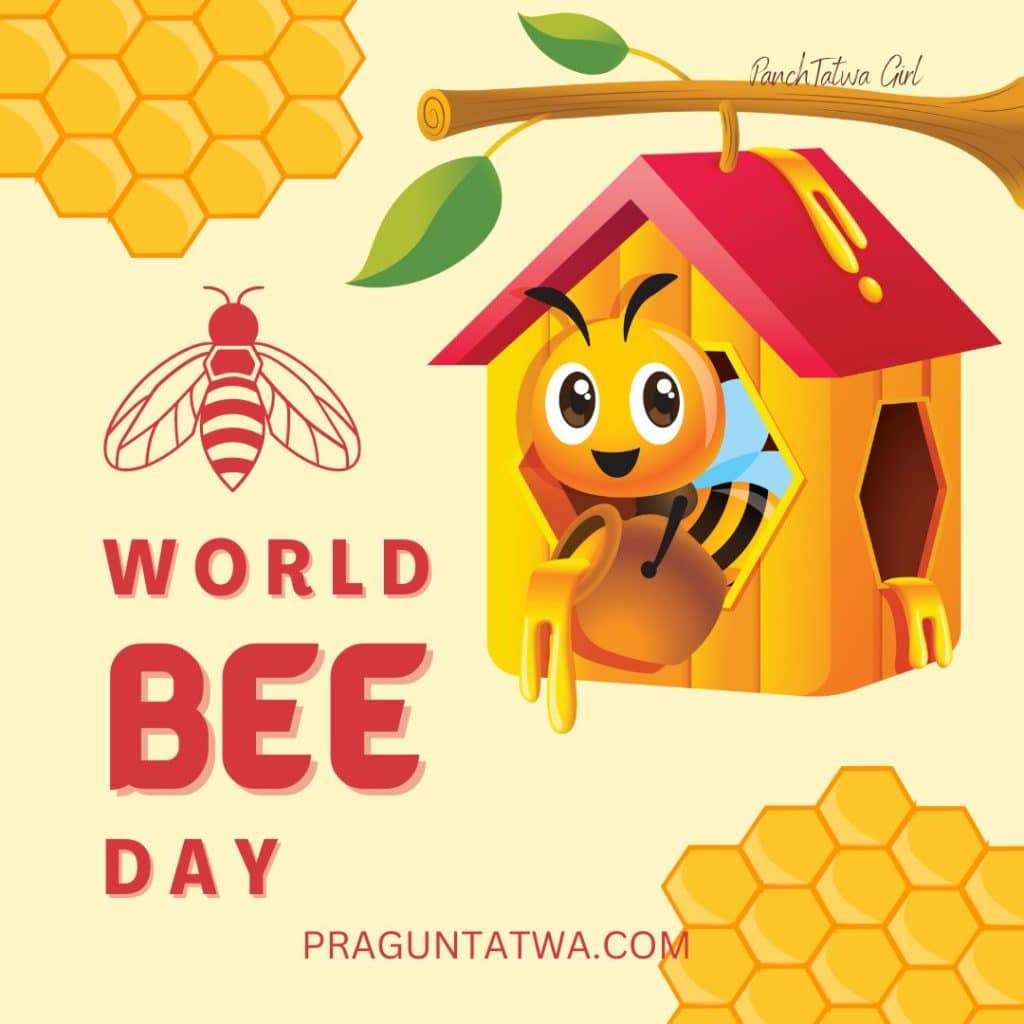Why Bees matter
by The Tatwa Girl · Published · Updated

World Bee Day is celebrated on May 20th each year. This day was established by the United Nations in December 2017 to raise awareness about the essential role bees and other pollinators play in keeping the planet healthy. The date was chosen in honor of Anton Janša, a pioneer of modern beekeeping, who was born on May 20, 1734.
The primary goals of World Bee Day are:
- Raising Awareness: Highlighting the importance of bees and other pollinators in the ecosystem, including their crucial role in pollinating crops, which contributes to global food security and biodiversity.
- Promoting Actions: Encouraging measures to protect bees and their habitats. This includes actions to reduce the use of pesticides, fostering sustainable agricultural practices, and conserving natural habitats.
- Celebrating Beekeeping: Acknowledging the contributions of beekeepers and the importance of beekeeping for sustainable agriculture and rural development.

Why Bees Matter
- Pollination: Bees are among the most important pollinators, facilitating the reproduction of many plants, which in turn supports food production and biodiversity.
- Biodiversity: By helping plants reproduce, bees support the habitats of other wildlife.
- Food Security: A large portion of the crops that make up the world’s food supply depend on pollination by bees.
Threats to Bees
Bees face several threats that have led to declining populations worldwide:
- Pesticides: The use of chemical pesticides can be harmful to bees, affecting their health and ability to pollinate.
- Habitat Loss: Urbanization, agriculture, and deforestation reduce the natural habitats available to bees.
- Climate Change: Changing climate patterns can affect the availability of flowers and alter the ecosystems that bees depend on.
- Diseases and Parasites: Bees are susceptible to various diseases and parasites, which can decimate bee colonies.
How to Support Bees
- Plant Bee-Friendly Flowers: Grow a variety of plants that flower at different times of the year to provide bees with a continuous source of nectar and pollen.
- Avoid Pesticides: Use natural alternatives to chemical pesticides in gardens and farms.
- Support Local Beekeepers: Purchase honey and other products from local beekeepers to support their efforts in maintaining healthy bee populations.
- Create Bee Habitats: Set up bee hotels or leave patches of natural habitat in gardens and communities to provide nesting sites for bees.
World Bee Day serves as a reminder of the indispensable role bees play in our lives and encourages collective efforts to protect these vital pollinators.

From My Green Bag
Read similar posts on sustainable and eco-friendly living and a conscious lifestyle. To sum up, This is my conscious lifestyle post to spread more awareness about sustainable living. Join me for more such ways and tips and become part of my Conscious and sustainable living journey. Keep visiting my blog to make yourself eco-friendly, aware of conscious and sustainable choices, be more concerned for our environment, and alter your lifestyle.
To add on, read and listen to my Green Talks series and check out interviews with Eco-conscious people who are trying their bit towards conscious and sustainable living practices. There is so much to learn and explore from all of them I have interacted, do listen and drop in your views in the comments. Check here to learn more about all the Eco-Friendly dates.
Being Eco-Friendly is not a choice, make it a habit.
Without a doubt, sustainability is easier than you think. You don’t have to jump in by changing everything, start small to make the changes more eco-friendly, sustainable and a part of your daily life.








Recent Comments